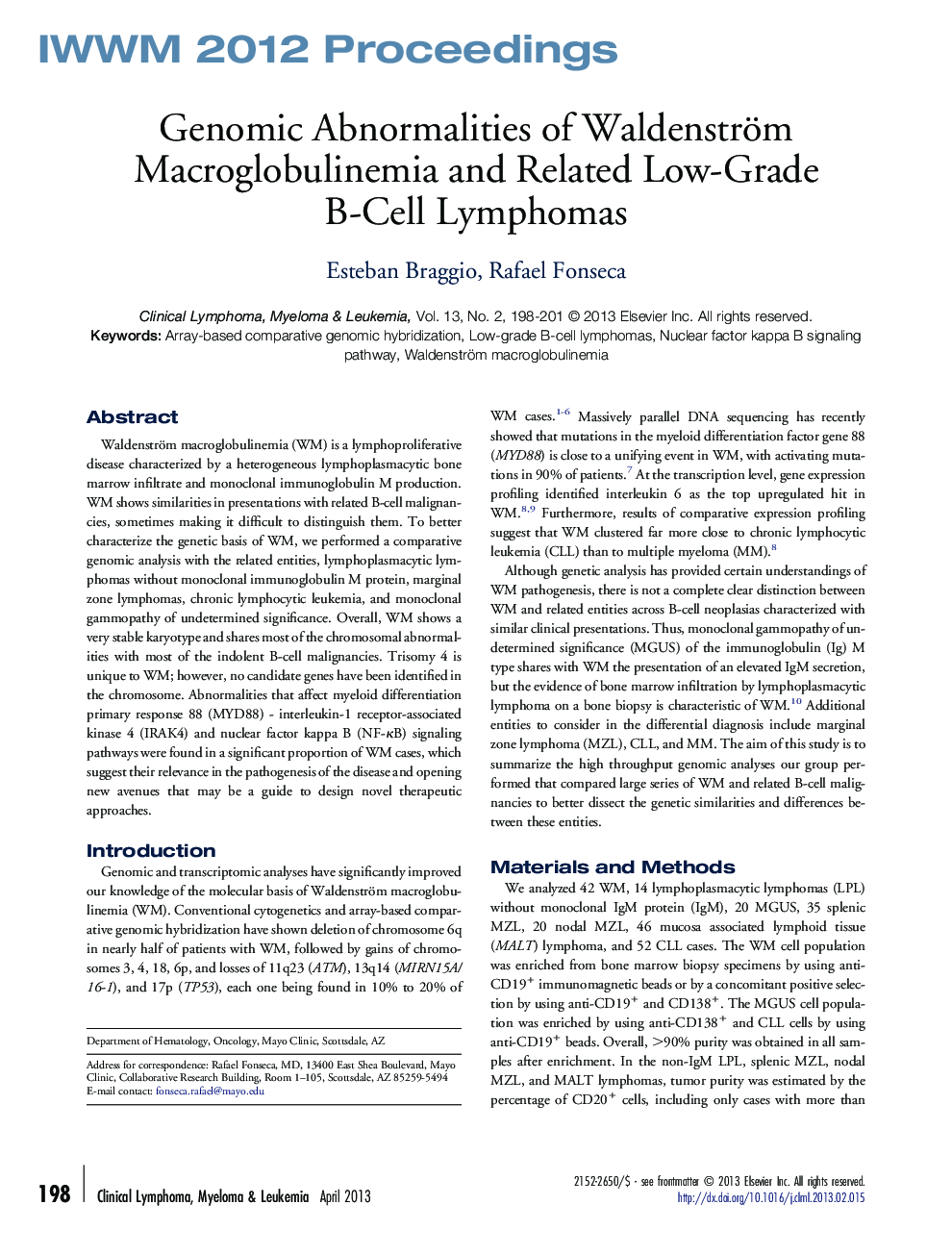| Article ID | Journal | Published Year | Pages | File Type |
|---|---|---|---|---|
| 2754593 | Clinical Lymphoma Myeloma and Leukemia | 2013 | 4 Pages |
Waldenström macroglobulinemia (WM) is a lymphoproliferative disease characterized by a heterogeneous lymphoplasmacytic bone marrow infiltrate and monoclonal immunoglobulin M production. WM shows similarities in presentations with related B-cell malignancies, sometimes making it difficult to distinguish them. To better characterize the genetic basis of WM, we performed a comparative genomic analysis with the related entities, lymphoplasmacytic lymphomas without monoclonal immunoglobulin M protein, marginal zone lymphomas, chronic lymphocytic leukemia, and monoclonal gammopathy of undetermined significance. Overall, WM shows a very stable karyotype and shares most of the chromosomal abnormalities with most of the indolent B-cell malignancies. Trisomy 4 is unique to WM; however, no candidate genes have been identified in the chromosome. Abnormalities that affect myeloid differentiation primary response 88 (MYD88) - interleukin-1 receptor-associated kinase 4 (IRAK4) and nuclear factor kappa B (NF-κB) signaling pathways were found in a significant proportion of WM cases, which suggest their relevance in the pathogenesis of the disease and opening new avenues that may be a guide to design novel therapeutic approaches.
